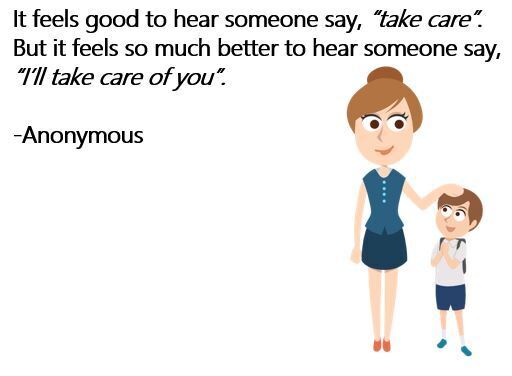Intention to do something
Objectives
Objective: In this topic, you will learn to develop oral and written texts to express and inquire about the intention to do something, by taking into account the social function, the structure of the text, and linguistic elements, correct and in context.
LESSON
Key Points
Read the following illustration.
Next week is a semester holiday. You want to go somewhere to enjoy the weekend. It means you have an intention to do something on the weekend. The plan is, you are going out of town. Now, let’s learn how to communicate the plan to your friends.
Next week is a semester holiday. You want to go somewhere to enjoy the weekend. It means you have an intention to do something on the weekend. The plan is, you are going out of town. Now, let’s learn how to communicate the plan to your friends.
Read the dialog below:
Budi: “Hi Amir, what’s up?”
Amir: “Hello, I’m fine thanks. How about you?”
Budi: “I am doing well. By the way, next week is the semester holiday. Have you got any plans?”
Amir: “I don’t know, but I think I will spend the holiday at home with my parents. What about you?”
Budi: “I am going to go to Bali Island. I have never been there before.”
Amir: “People say the Bali is really beautiful. Which resorts will you visit?”
Budi: “Perhaps, I will go to Kuta Beach.”
Amir: “Will you surf, then?”
Budi: “No, I won’t. I cannot swim, Amir.”
Amir: “So, What are you going to do there?”
Budi: “I am going to enjoy the sunset, play sand on the beach and enjoying the scenery.”
Amir: “That sounds great! I hope you enjoy your holiday, Budi.”
Budi: “Hi Amir, what’s up?”
Amir: “Hello, I’m fine thanks. How about you?”
Budi: “I am doing well. By the way, next week is the semester holiday. Have you got any plans?”
Amir: “I don’t know, but I think I will spend the holiday at home with my parents. What about you?”
Budi: “I am going to go to Bali Island. I have never been there before.”
Amir: “People say the Bali is really beautiful. Which resorts will you visit?”
Budi: “Perhaps, I will go to Kuta Beach.”
Amir: “Will you surf, then?”
Budi: “No, I won’t. I cannot swim, Amir.”
Amir: “So, What are you going to do there?”
Budi: “I am going to enjoy the sunset, play sand on the beach and enjoying the scenery.”
Amir: “That sounds great! I hope you enjoy your holiday, Budi.”
The above dialogue illustrated about the holiday plan or an intention on going for a vacation.
There are basically two ways in expressing intentions, or purpose. Firstly, when the decision is already made before a conversation takes place. Secondly when the decision is made spontaneously during a conversation.
There are basically two ways in expressing intentions, or purpose. Firstly, when the decision is already made before a conversation takes place. Secondly when the decision is made spontaneously during a conversation.
For spontaneous expressions, the pattern is:
S + will + V1 + O
S + will + V1 + O
Look at the example from dialog above:
- I think I will spend my holiday at home with my parents
- Perhaps, I will go to Kuta Beach
- I don’t think I will surf
- I think I will spend my holiday at home with my parents
- Perhaps, I will go to Kuta Beach
- I don’t think I will surf
But when we have a plan or intention to do something in the future, we usually use other forms of future tense. We use “ be going to”.
Let’s study the patterns:
Let’s study the patterns:
S + be + going to + V1 + O
Look at the example from dialog above:
- I am going to go to Bali Island. I have never been there
- I am going to enjoy the sunset and play the sands on the beach
- I am going to go to Bali Island. I have never been there
- I am going to enjoy the sunset and play the sands on the beach
Preposition of time used in this tenses are:
- Tomorrow
- Next
- Next week
- Tonight
- Next month
- Etc
- Tomorrow
- Next
- Next week
- Tonight
- Next month
- Etc
Below, some other expressions about plan or intention
Examples of expression in asking for plan or intention:
- Where will you go next holiday?
- What will you do after graduating from college?
- What’s your plan tonight?
- What will you do next week?
- What do you plan to do?
- What are you going to do tomorrow?
- What do you want to do?
Examples of expression in asking for plan or intention:
- Where will you go next holiday?
- What will you do after graduating from college?
- What’s your plan tonight?
- What will you do next week?
- What do you plan to do?
- What are you going to do tomorrow?
- What do you want to do?
Expressions of stating intentions:
- I plan to…
- I intend to …
- I am going to ….
- I will watch a movie tonight
- I am thinking of …..
- I’ve been thinking about …
- I’m planning to ….
- I’m decided to …..
- I want to ….
- I plan to…
- I intend to …
- I am going to ….
- I will watch a movie tonight
- I am thinking of …..
- I’ve been thinking about …
- I’m planning to ….
- I’m decided to …..
- I want to ….























